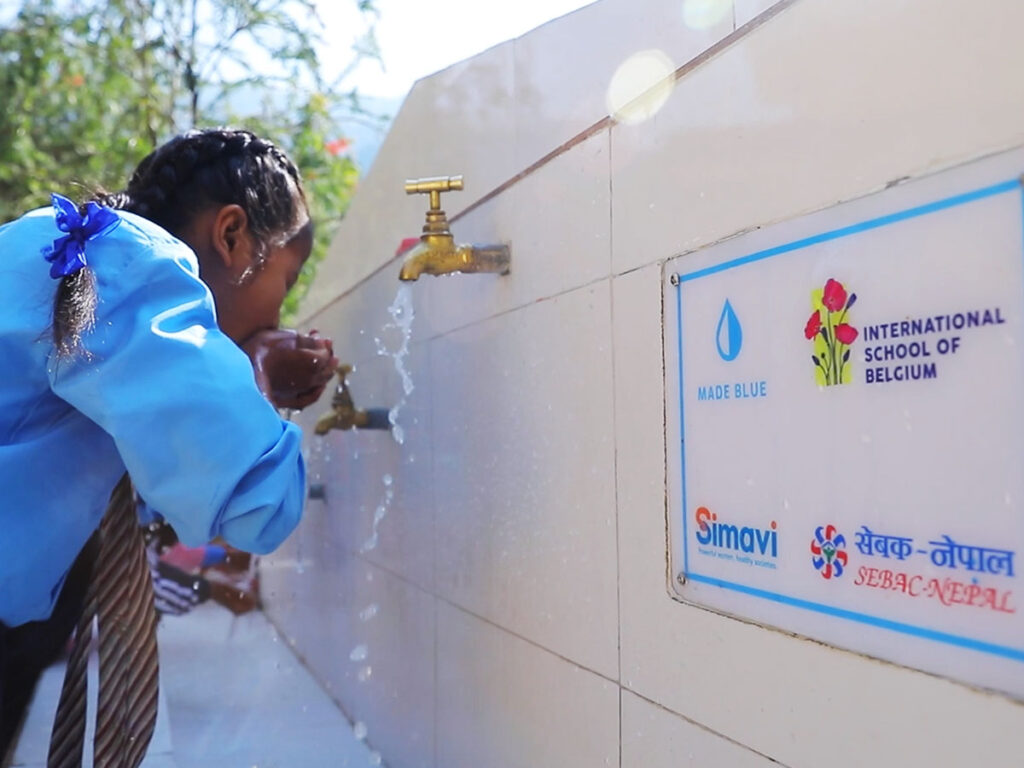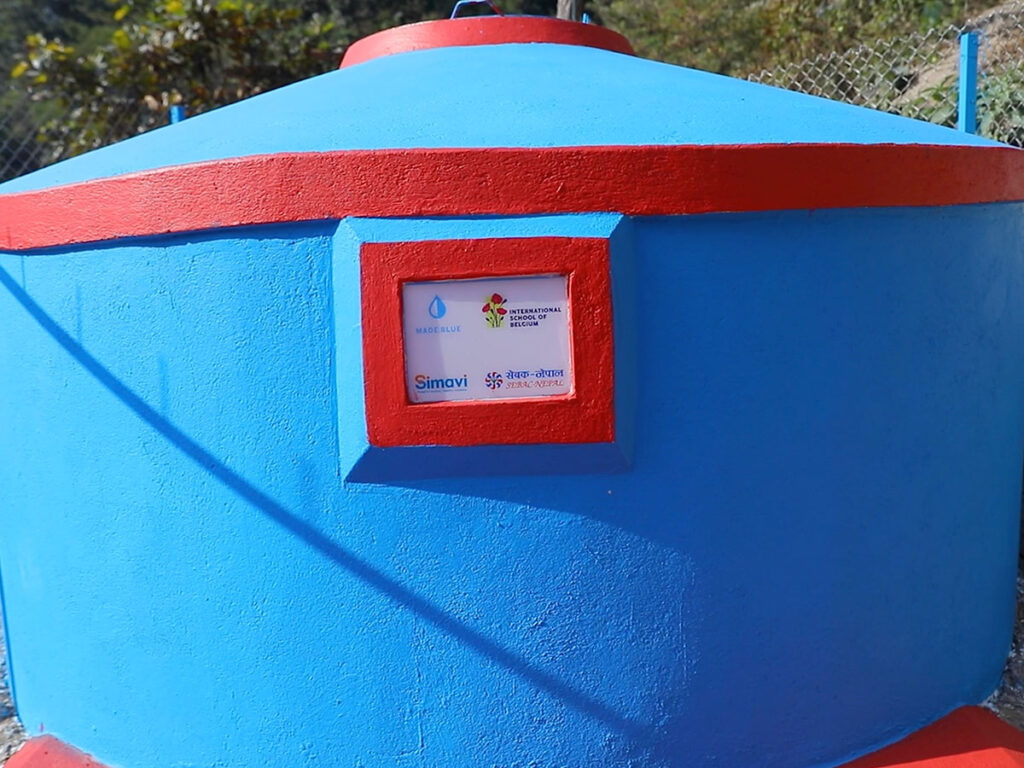A school visit in Nepal
The devastating earthquake of 2015 still has a great impact on daily life in Nepal, almost a decade later. The damage done to many villages and remote areas has also had its effect on local infrastructure. That’s why many people in these areas have to resort to drinking polluted water to this day. We hope to change this via our Water by Women project.

Only one tap for 290 students
At the end of 2023, hard work was being done in Nepal on the fourth of the planned eight Drinking Water Supply Schemes (DWSS) of our Water by Women in Nepal project. The local Shree Sukute Secondary School was able to put its new water point to use by December.
Previously the 290 students of this school had had to make do with 1 tap. The water from it was polluted and regularly contaminated. Students were often sick. The source of this water was remote, poorly maintained and protected, and used by many more communities and households than it was built for, making contamination of the water supply unavoidable.
.
“
Before this project, we had many problems because of the lack of water. We are happy and satisfied with the results. Water is an essential element in our daily lives. Without it, many problems would stay unsolved.
Sita Giri, teacher
”
Providing 438 people with clean water
Thanks to the construction of the new water point, the students now have no fewer than eight taps at their disposal, some of which are placed lower so that even the youngest students can easily reach them. This new and safe water point doesn’t just serve the school. It is also accessible to a neighbouring health centre and 9 nearby households. As a result, no fewer than 438 people now have access to clean drinking water via this one new DWSS.
We received a beautiful video from our project partners, filmed at the school, with a student, teacher and local water committee member sharing their stories. See below to view it yourself.

Water by Women
In Nepal many men leave the villages for the cities to earn an income, not always with success. Many women are therefore responsible for the family. They are not used to developing economic activities, which means that they cannot develop themselves and remain stuck in a poverty trap.
In the north-east of Nepal, many water supplies from the past have been poorly managed or broken during the major earthquake of 2015. Because many people from low castes live in these areas, they have fewer opportunities. Together with the women, we are going to repair or construct the water facilities in an enterprising way so that more than 25,300 people will soon have access to clean drinking water.
You might want to read these updates too:
Update: end results in Nepal
Discover outcomes of the Water by Women project in Nepal – empowering women from the Dalit and Janajati communities in water management.
Read moreAn update on construction works in Nepal
We’ve made major progress in Nepal over the past few months. We’ve constructed six new water points and restored two existing ones, giving 1,950 people direct access to clean water.
Read more